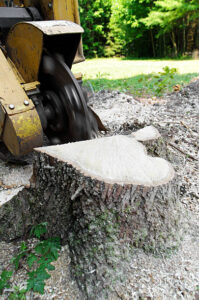At first glance, the term “geomembrane sheet” might sound like something out of a scientific experiment, but these sheets are far more fascinating and practical than they appear. Geomembrane sheets are engineered solutions that serve as barriers to prevent fluid migration in various applications, such as mining, irrigation, construction, and waste management. With their customizable sizes and remarkable durability, these synthetic membrane liners are indispensable in projects where preventing fluid seepage is critical. Whether it’s for irrigation fields, construction sites, or water reservoirs, geomembrane sheets act as protective barriers, ensuring the structural integrity and long-term durability of the project. Let’s explore their features, types, and the numerous benefits they offer.
What is a Geomembrane Sheet?
A geomembrane sheet is a type of synthetic membrane liner made from geosynthetic materials like polymers. These sheets are highly effective in preventing fluid leakage, chemical contamination, and soil erosion. Commonly used in industries like agriculture, environment, hydraulics, and oil and gas, geomembrane sheets are renowned for their impermeability and resistance to harsh environmental conditions.
By acting as a barrier, these sheets ensure that fluids or contaminants do not migrate, thereby protecting the surrounding environment and ensuring smooth project functioning.
Key Features of Geomembrane Sheets
Geomembrane sheets are designed with advanced materials that make them highly functional and versatile. Here are some of their standout features:
1. High Durability
Geomembrane sheets are exceptionally durable, with high tensile strength and the ability to withstand heavy loads and environmental stress. This makes them ideal for long-term applications in challenging conditions.
2. Impermeable Barrier
One of the primary features of geomembrane sheets is their impermeability, which prevents water, chemicals, and gases from seeping through. This is particularly beneficial in agriculture and waste management, where leakage prevention is critical.
3. UV Resistance
Geomembrane sheets are designed to resist UV radiation, making them suitable for outdoor applications without degradation over time.
4. Strong Mechanical Properties
With excellent tear and puncture resistance, geomembrane sheets can handle mechanical stress effectively, ensuring reliable performance in demanding applications.
5. Lightweight and Flexible
Despite their strength, these sheets are lightweight and easy to transport and install. Their flexibility allows them to adapt to various surface contours, ensuring a seamless fit.
6. Chemical Resistance
Geomembrane sheets are resistant to a wide range of chemicals, making them ideal for industries like mining and industrial waste containment.
7. Seam Integration
For enhanced effectiveness, geomembrane sheets are installed with seam integration techniques to ensure a continuous barrier, preventing leaks at weak points.
Types of Geomembrane Sheets
There are several types of geomembrane sheets, each designed for specific applications. Here are the most common ones:
1. HDPE Geomembrane Sheet (High-Density Polyethylene)
- Features: High chemical resistance, durability, and flexibility.
- Applications: Used in landfills, water reservoirs, and marine life protection.
2. LLDPE Geomembrane Sheet (Linear Low-Density Polyethylene)
- Features: Enhanced flexibility and elongation properties.
- Applications: Ideal for irrigation ponds, canals, and applications requiring high adaptability.
3. PVC Geomembrane (Polyvinyl Chloride)
- Features: Easy to install, flexible, and cost-effective.
- Applications: Commonly used in aquaculture, waste containment, and temporary liners.
4. EPDM Geomembrane Sheet (Ethylene Propylene Diene Monomer)
- Features: High UV resistance and elasticity.
- Applications: Suitable for ponds, reservoirs, and landfill liners.
5. PP Geomembrane Sheet (Polypropylene)
- Features: High resistance to chemicals and extreme temperatures.
- Applications: Used in chemical containment and industrial applications.
6. TPE Geomembrane Sheet (Thermoplastic Elastomer)
- Features: Flexible and waterproof, ideal for moderate temperatures.
- Applications: Used in waterproofing projects and water reservoirs.
Benefits of Geomembrane Sheets
Geomembrane sheets offer numerous benefits across various industries, making them indispensable for modern infrastructure and environmental protection. Key benefits include:
1. Prevents Water Contamination
These sheets effectively block harmful chemicals and contaminants from entering water sources, ensuring clean water for agricultural and industrial purposes.
2. UV Protection
Geomembranes safeguard outdoor reservoirs and liners from harmful UV rays, ensuring longevity and efficiency.
3. Cost-Effective
Though they may have higher upfront costs, their low maintenance requirements and long lifespan make geomembrane sheets a cost-effective choice for long-term projects.
4. Supports Environmental Conservation
By preventing leakage of hazardous materials and chemicals, geomembrane sheets contribute to protecting the environment and reducing the risk of soil erosion and contamination.
5. Reduces Disease Risk
In agricultural settings, these sheets help prevent waterborne diseases caused by contaminated water, thereby promoting healthier farming practices.
6. Versatile Applications
From irrigation systems to landfill liners, geomembrane sheets cater to a wide range of uses, making them a versatile solution.
Applications of Geomembrane Sheets
Geomembrane sheets are utilized in various industries to address specific challenges. Common applications include:
- Agriculture: Lining irrigation canals and water storage ponds to prevent seepage.
- Mining: Containing hazardous chemicals and wastewater to protect surrounding areas.
- Waste Management: Serving as landfill liners to prevent leachate from contaminating groundwater.
- Aquaculture: Creating safe environments for fish and aquatic life in ponds and tanks.
- Construction: Waterproofing foundations and preventing soil erosion in infrastructure projects.
How to Choose the Right Geomembrane Sheet
Selecting the right geomembrane sheet depends on several factors, including:
- Type of Application: Consider the specific use case, such as water containment, waste management, or chemical resistance.
- Environmental Conditions: Choose a sheet with the appropriate durability and UV resistance for the intended environment.
- Budget: Balance upfront costs with long-term benefits and maintenance requirements.
Wrap Up
Geomembrane sheets are an essential tool for industries ranging from agriculture to waste management, offering durability, flexibility, and environmental protection. Whether you need to prevent water seepage, contain hazardous materials, or create a sustainable water reservoir, geomembrane sheets provide a reliable and cost-effective solution.
To get the most out of these versatile sheets, ensure you work with a reputable supplier who can guide you in selecting the best product for your needs. Companies like Mono Industry provide high-quality geomembrane sheets designed to deliver exceptional performance and durability, ensuring your projects achieve their intended goals efficiently.






More Stories
Tree and Stump Removal: A Complete Guide for Homeowners
Explore the Perfect Dell Keyboard – Your One-Stop Solution for All Models
Embroidery Design Shop for Custom & Printable Patterns